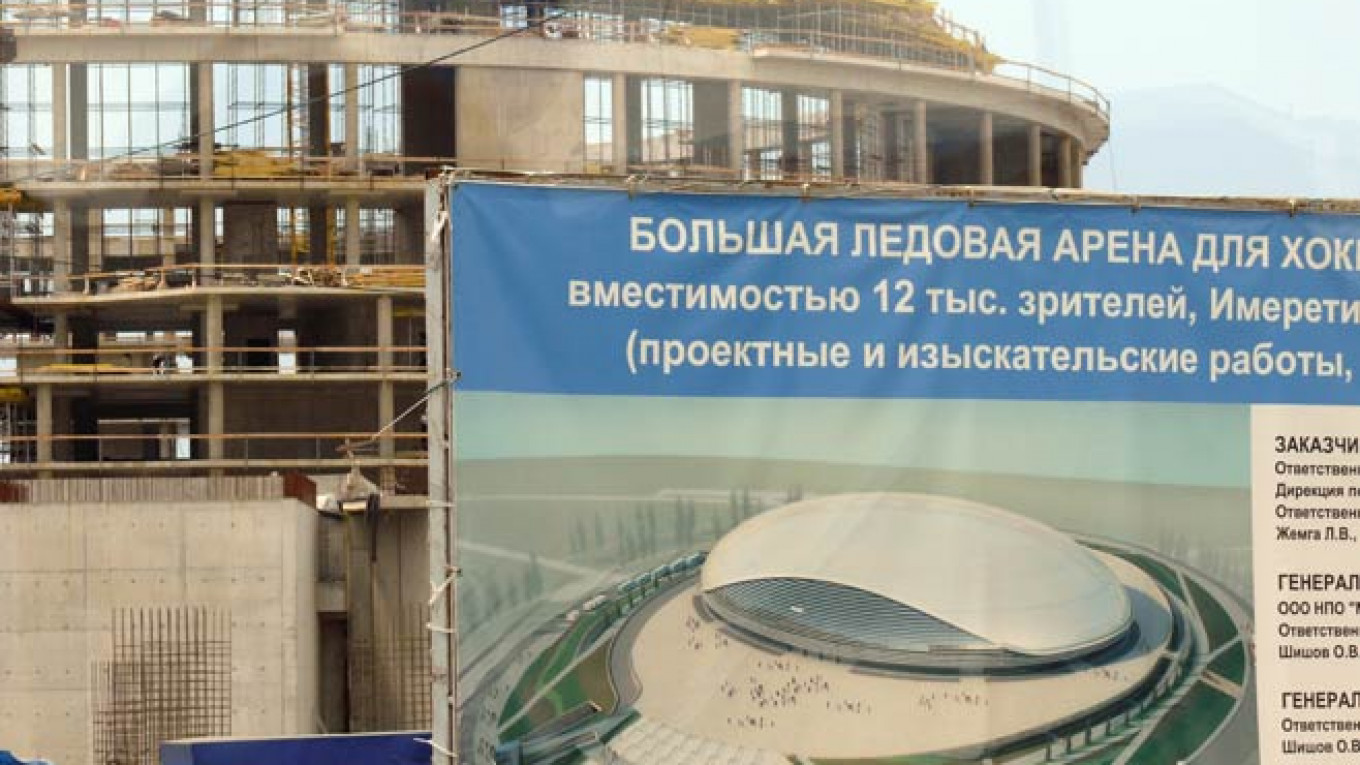The construction industry is in huge turmoil as major firms, which were involved in building the infrastructure for the 2014 Sochi Olympic Games, have either been declared insolvent or are on the verge of bankruptсy, Vedomosti reported Monday.
The problems in the industry are connected with the inadequate planning of expenses, which may rise several times from initial estimates during construction. And the government does not compensate losses, forcing the contractors to stick to the originally agreed prices, industry officials said.
The companies lose great amounts of money as a result. Two major Olympic contractors — Mostovik and Tonnelny Otryad 44 — are undergoing a bankruptcy procedure, while another Olympic builder Mosinzhstroi was unable to repay bank loans and announced its liquidation.
A Vedomosti source in Mostovik said that not only companies involved with Olympic venues were affected but many other firms participating in government construction projects.
Mosinzhstroi's major rival Kosmos, one of the leading constructors of transport infrastructure in the country, is also on the brink of bankruptcy, while Gornoprokhodcheskye Raboty 1, or GPR 1, which participated in the construction of Okhotny Ryad shopping center and the restoration of Manezh Square, has almost stopped operating, sources close to the companies told Vedomosti.
Another problem is the haste with which the projects are implemented. And as they ignore the geological peculiarities of the site they have to be changed several times during the construction period.
"In European countries there is a very distinct system of implementing construction contracts. At first there is a long process of project development, then the territory is being cleared and only after that the contractors are being selected, said Vladimir Vlasov of Mostotrest, one of the biggest Russian construction companies, which belongs to Arkady and Igor Rotenberg.
"In Russia unfortunately the situation is different. We do the project development very quickly, but the actual construction may last for a long time and be accompanied by serious expenses," he added.
Government officials put the blame on constructors. "If a contractor wins an auction, but does not study the project documents properly, it is his fault. The budget will not compensate his mistakes," Andrei Bochkaryov, head of Moscow's construction department, told Vedomosti.
The total cost of the Olympic games in Sochi reached 1.5 trillion rubles ($50 billion), becoming the most expensive project in the history of the Games. Ninety-eight percent of the money was used for construction. However, the contractors did not get a chance to earn a fortune.
"One of the reasons why the Olympic venues did not bring much money to contractors was the limited period of time for their implementation. This increased spendings with the construction," said Marina Smirnova, head of hotels and tourism department at Cushman & Wakefield. She added that additional investments had to be used to double the number of construction workers because of the rush.
Contact the author at [email protected]
A Message from The Moscow Times:
Dear readers,
We are facing unprecedented challenges. Russia's Prosecutor General's Office has designated The Moscow Times as an "undesirable" organization, criminalizing our work and putting our staff at risk of prosecution. This follows our earlier unjust labeling as a "foreign agent."
These actions are direct attempts to silence independent journalism in Russia. The authorities claim our work "discredits the decisions of the Russian leadership." We see things differently: we strive to provide accurate, unbiased reporting on Russia.
We, the journalists of The Moscow Times, refuse to be silenced. But to continue our work, we need your help.
Your support, no matter how small, makes a world of difference. If you can, please support us monthly starting from just $2. It's quick to set up, and every contribution makes a significant impact.
By supporting The Moscow Times, you're defending open, independent journalism in the face of repression. Thank you for standing with us.
Remind me later.






